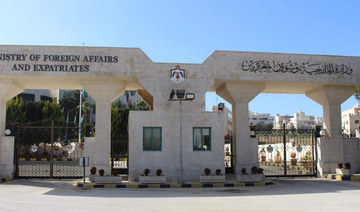Dr. Mohammed Al-Sulami
Following the resolution of any long-simmering regional or international dispute involving two major regional geopolitical states, both of which wield massive influence over regional and even international affairs, the leaderships and elites in both states long to present visions and proposals to maximize their gains and interests in the post-settlement era.
The models of politics and governance determine each party’s perceptions, as well as the degree to which each is devoted to observing the rules and norms and upholding international legitimacy. Furthermore, the contentious issues, the extent to which they intersect, the duration of the dispute and the extent of its recurrence over successive periods of time impact and shape the perceptions of each disputant party.
Previous resolutions of various regional and global conflicts suggest that, when a party to the conflict complies with laws and norms and maintains international legitimacy, its strategy in developing a workable proposal for managing an effective post-conflict relationship with the other party – a party that has prioritized a sectarian policy, embraced a sectarian geopolitical outlook buttressed by constitutional provisions and whose record confirms that it never pays any heed to laws or to international legitimacy -must be guided by a vision based on, among other features, the creation of a safe distance. The institutions of this party should adopt a balanced and carefully calculated approach that encourages and even creates opportunities, but at the same time is not heedless to the negative practices of the other party.
A safe distance would allow the state to preserve its credibility and maintain a neutral position toward regional and global issues, especially since such a conscientious party and its political, cultural and media institutions, in compliance with international law, played a major role in the preceding decades of regional and global mobilization against the party whose compliance is questionable based on its historical record. This first party, in compliance with international laws and norms, has succeeded to a great degree in providing countries and their institutions with irrefutable proof and articles of evidence confirming the dangers posed by the opposing party’s policies in a way that enabled this complying party to gain the confidence of several international entities.
The focus placed by this law-abiding party on keeping a safe distance and ensuring the adversarial party’s compliance with international laws gives the latter the impression that the policies of exerting pressure, imposing isolation and enforcing further restrictive sanctions would be reinstated if it continues its usual failure to comply with the pledges and promises made in the settlement agreement. The law-abiding party, which already complies with international laws, should not concede all the levers of power at once. On the contrary, any concessions should be carefully considered, calculated and based on the extent to which the opposing party responds positively to the outstanding issues, as long as it does so in a way that does not adversely impact the future of their relationship. Maintaining such a safe distance therefore allows the compliant state to act as an acceptable intermediary in resolving several disputes, maximizing its regional and global role and status.
Any failure to maintain such a safe distance in the post-settlement era would negatively impact and undermine the party that has spent years building an excellent global reputation with friendly nations and partners. This would also have the unintentional effect of confirming for the party whose compliance is questioned that there is some truth in its accusations against the opposing, law-abiding party, which it accuses of having sought over the years to demonize it to achieve political objectives that serve no interests but its own.
Hence, the party whose compliance is in question would claim that all of the proof, research studies and media reports issued by its adversaries were biased and politically motivated. This could have negative consequences if the law-abiding party and its institutions were prompted to act in case the doubts about the other party’s intent not to honor its commitments and obligations in the future proved true. This scenario is still very likely. As a result, a strategy should be developed that accounts for the possibility of the party whose compliance is in question breaching its commitments and obligations at any time. There are a host of motives and incentives that demonstrate and underline the necessity of maintaining a safe distance, including the worldview, well-established principles and tenets of the regime ruling the party whose compliance is questioned, along with its lengthy record of noncompliance with laws and norms and its failure to attain international legitimacy. All of the aforementioned make a safe distance not only prudent but essential, along with a keen awareness of the questionable party’s ideology and pragmatic strategies – depending on the extent of the gains and the nature of the phase – to achieve the objectives of its ideological and geopolitical policies as defined by the constitution.
This is especially true if the assessments of the responsible party suggest that the noncompliant party’s shifts are tactical and driven by expediency and the circumstances dictated by the current stage, as well as by the huge impact of the pressures and embargo placed on it. Also, the need for a safe distance is a must even if the law-abiding party possesses no solid proof that such shifts indicate a strategic transformation in the behavior of the party whose compliance is questioned. In conclusion, the tempo of regional and global geopolitical shifts has significantly gathered pace, driven by the complex intersections of issues, competing agendas and the contest of regional and global wills, particularly in light of the exacerbation of crises and the emergence of unexpected regional and global disputes ignited primarily by world powers vying for global leadership. As a result, it is necessary to foresee and plan for scenarios and eventualities that may arise as a result of the current geopolitical scene and equations.
Lastly, the question that arises is: What will be the response and reaction in case of potential shifts that favor the party whose compliance is questioned, especially if it again pushes to abandon its commitments, particularly if we link such an abandonment to its well-established tenets and long history of noncompliance with its international commitments? A solution certainly exists that presents multiple visions for managing the new era in a way that maintains interests and maximizes gains by keeping a safe distance. This will create a tool of constant pressure on the party whose compliance is in question, since it will feel that there is always a possibility that the policies that imposed pressure and siege on it could be reinstated, with the same previous degree of credibility, impartiality and international mobilization against it in case it reneges on its obligations. This would form part of an interim, flexible and watertight national strategy well suited to the circumstances dictated by each stage and in accordance with the positive progress made on the thorny issues of priority.







